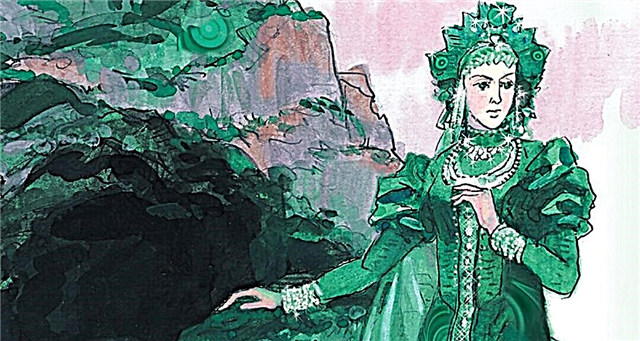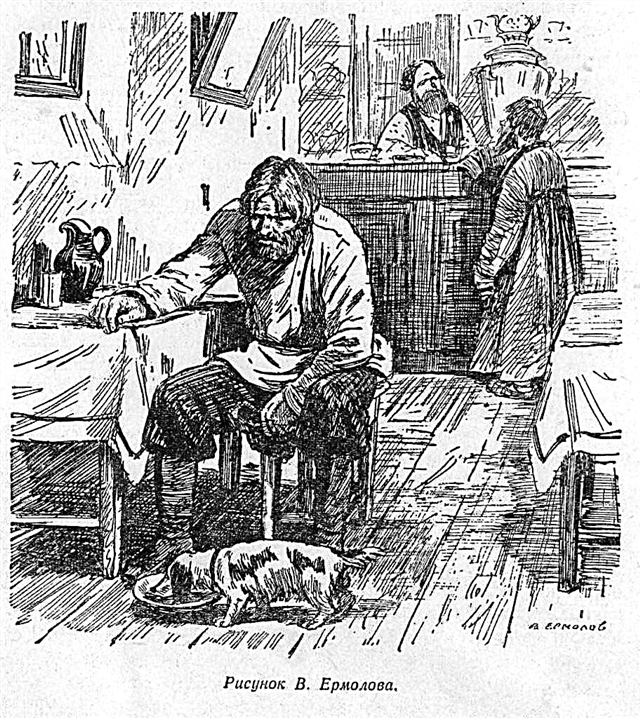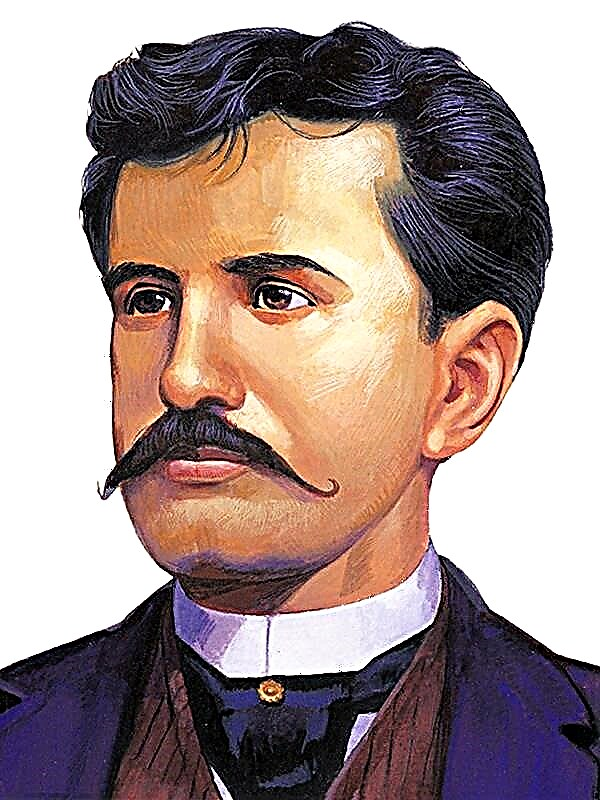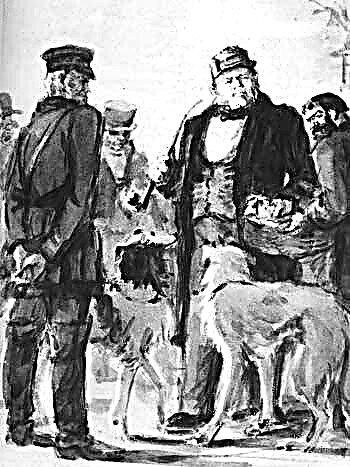The works included in the cycle "History of Eternity" are united primarily by the interest of the author, they are distinguished by their own characteristics, a certain cyclical nature, the recurrence of events in time, isolation ...
One of the stories included in The History of Eternity is The Approach to Almutasim.
The story is a kind of review of the novel that appeared in Bombay in 1932, written by lawyer Mir Bahadur. The hero of the novel, whose name has never been named, is a law student in Bombay. He moved away from the religion of his parents - Islam, but at the end of the tenth night of the month, Muharrama is in the thick of a brawl between Muslims and Indians. Three thousand people fight, and a freethinking student, shocked by this, intervenes in the struggle. In a desperate fight, he kills (or thinks he kills) an Indian. Mounted police appear and starts whipping everyone. The student manages to escape almost from under the horse's hooves. He gets to the outskirts of the city and, climbing over the fence, finds himself in a neglected garden, in the depths of which the tower rises. A pack of dogs with "moon-colored" fur rushes at him from behind the black bushes. The pursued student seeks salvation in the tower. He runs up the iron staircase, which lacks several steps, and finds himself on a flat roof with a gaping well in the center. There he meets an emaciated man who admits that his job is to steal the golden teeth of corpses that are left in the tower for the night. He also tells other nasty things, speaks angrily about some people from Gujarat. At dawn, a weakened student falls asleep, and when he wakes up, he discovers that the thief has disappeared, and with it a few cigarettes and silver rupees of the student. Remembering last night, the student decides to get lost in the vastness of India. He thinks that he was able to kill an idolater, but at the same time he does not know who is more right - a Muslim or an idolater. The name “Gujarat” doesn’t come out of his head, as well as the name of a certain “malkassansi”, a woman from the robber caste, on whom the robber of corpses fell with particular anger. The student comes to the conclusion that the spite of such a vile person can be equated with praise, and decides - without much hope - to find this woman. After praying, the student slowly sets out on a journey.
Further, many characters appear in the story, and the student’s adventures continue on the lowlands of Palanpur, for one evening and one night the hero lingers at the stone gate of Bikaner, he sees the death of a blind astrologer on the outskirts of Benares, becomes a participant in a conspiracy in Kathmandu, prays and wanders among the plague stench Calcutta, observes the birth of a day at sea from an office in Madras, observes the dying of a day at sea from a balcony in the state of Travancore and closes the orbit of distances and years in the same Bombay, a few steps from a garden with lunar dogs. A student who does not believe in faith and has fled from his homeland falls into the company of people of the lowest level and adapts to such a life. Suddenly he notices a softening in one of the scum surrounding him: tenderness, admiration, silence. The student realizes that his interlocutor is not capable of such a sudden take-off, therefore, the spirit of some friend or friend of his friend was reflected in him. Reflecting on this, the student comes to a mystical conviction: “Somewhere on earth there is a man from whom this light emanates; somewhere on earth there is a man who is identical with this light. " And the student decides to devote his life to the search for this person.
He catches the faint gleams that this soul left in the souls of others: in the beginning - a slight trace of a smile or a word; at the end - a bright burning of reason, imagination and kindness. As the people discovered by the student become more and more familiar with Almutasim, the proportion of his divinity is increasing, but it is clear that these are only reflections. In front of Almutasim, the student meets a friendly and cheerful bookseller, and in front of him - a saint. After years of wandering, the student finds himself in a gallery, "in the depths of which there is a door and a cheap mat with many beads, and behind it a shine." A student asks Almutashima. The male voice, Almutashim's incredible voice, invites him to enter. The student pushes the mat back and passes.
This concludes the exposition of the text itself and some criticisms follow: Mir Bahadur Ali wrote the novel as an allegory: Almutasim is a symbol of God, and the stages of the hero’s path are, to some extent, the steps that the soul passed in a mystical ascent. From some descriptions it can be judged that Almutasim should inspire the idea of one God. In the first scene of the novel, you can find analogies with Kipling's story “In the City Wall”. It should also be noted that there are certain points of contact between the novel and The Conversation of Birds by Faridaddin Attara. The content of this Persian mystic poem is as follows: the bird king Simurg, who has arrived from afar, (whose name means "Thirty Birds") drops a magnificent feather in the center of China, and the birds, tired of anarchy, go in search of it. They overcome seven valleys or seas. Many of the wanderers refuse to search, many die. After cleansing, only thirty birds enter Mount Simurg. So they see him, and it becomes clear to them that they are Simurg and that Simurg is each of them and all of them together. Points of contact with the world novel by Bahadur Ali can be considered several words attributed to Almutasim, which develop what was said before by the hero, this (and other vague analogies) can serve to indicate the identity of the seeker and the seeker, mean the identity of the seeker and the seeker, can mean that the latter affects the former . One of the chapters contains a hint that Almutasim is the “Indian” whom the student, as it seems to him, killed.












